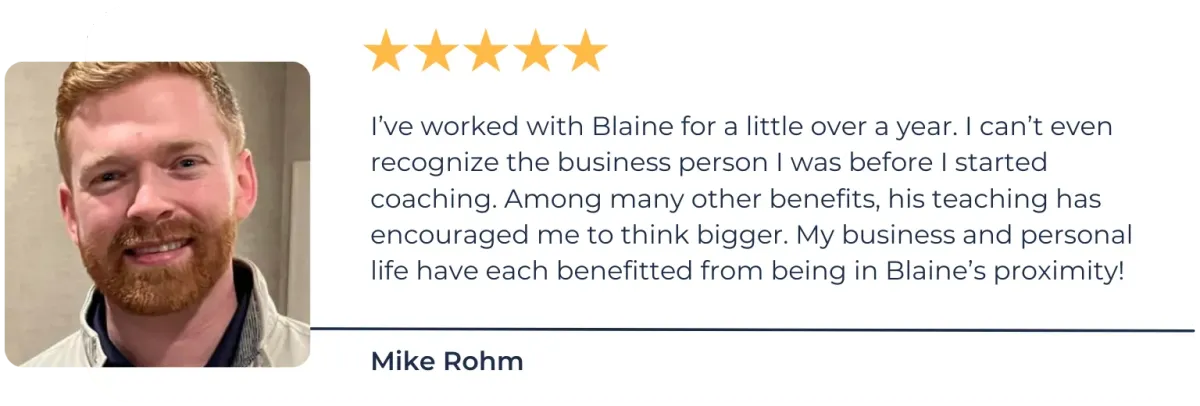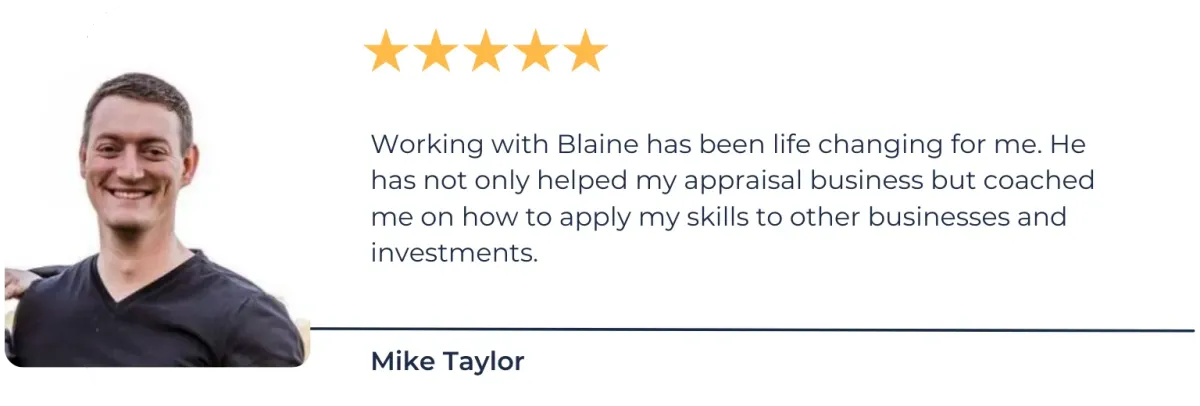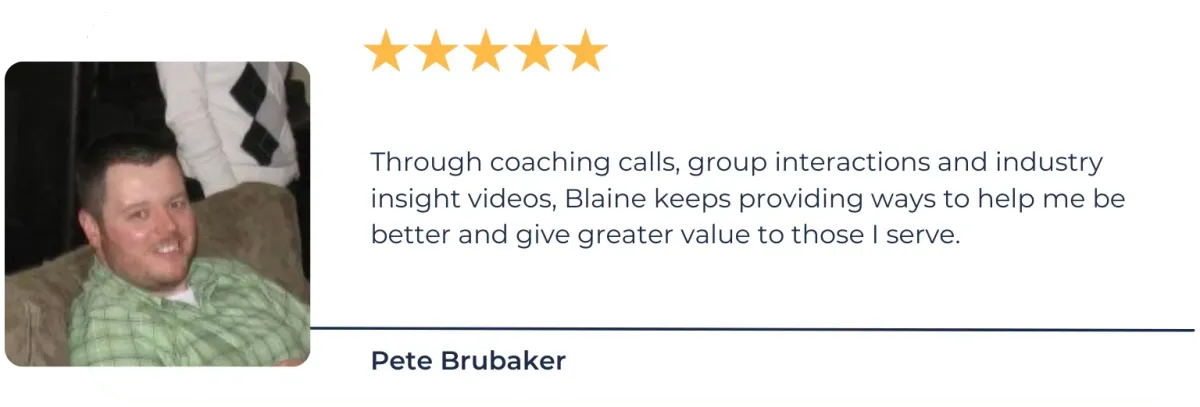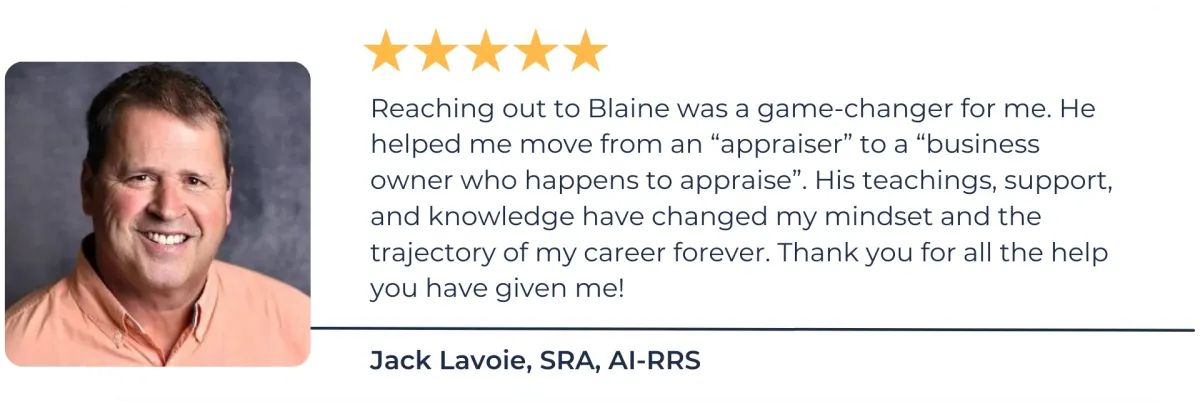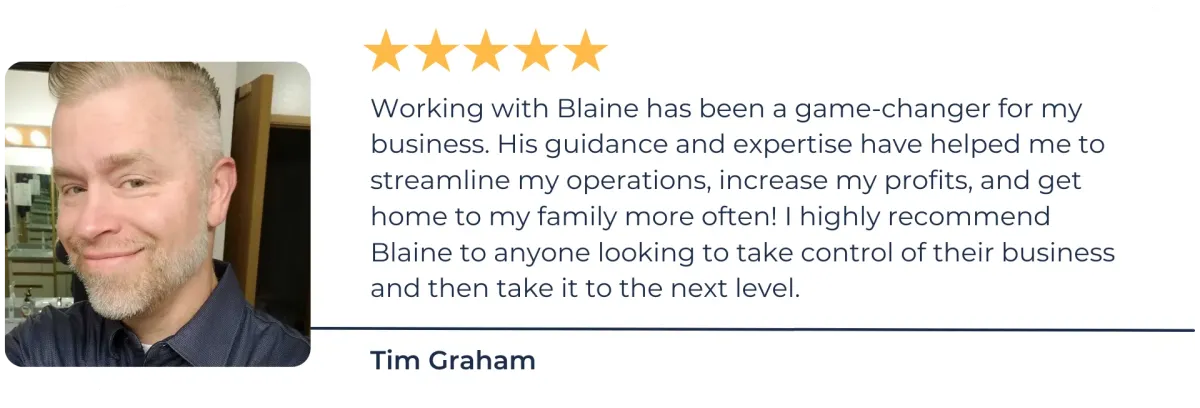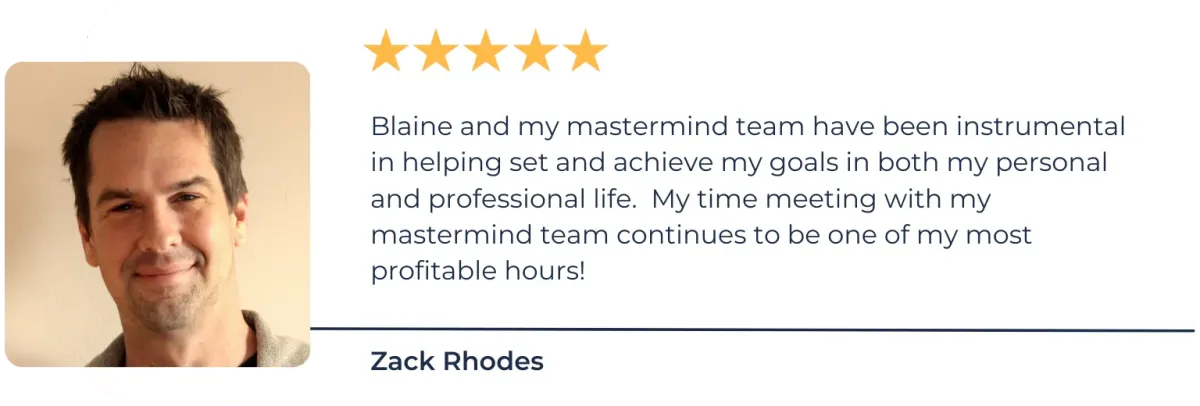WE COACH, YOU PROFIT!
We Help Appraisers Make More Money, In Less Time, With The Right Clients!
"If you want to excel, you hire a coach! Its that simple!"
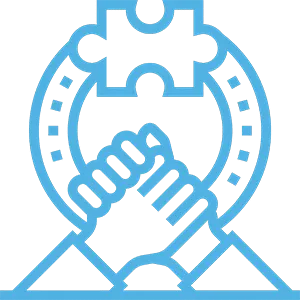
We help you reach new heights in life and business through our unique coaching

Transform your business from a life sucking monster to a life giving profit machine!

Become the absolute leader in any market!
One on one, small group, large group, and multi-media coaching and masterminding for unparalleled personal and business growth for those who are ready to skyrocket the success of their appraisal business!
Different Ways to Connect With Me!
LATEST PODCAST EPISODES
Be The One You’ve Been Waiting For!
Blaine discusses how important it is to become the person you’ve been waiting to come and save you because nobody else will. ...more
Appraiser coaching
December 26, 2025•21 min read
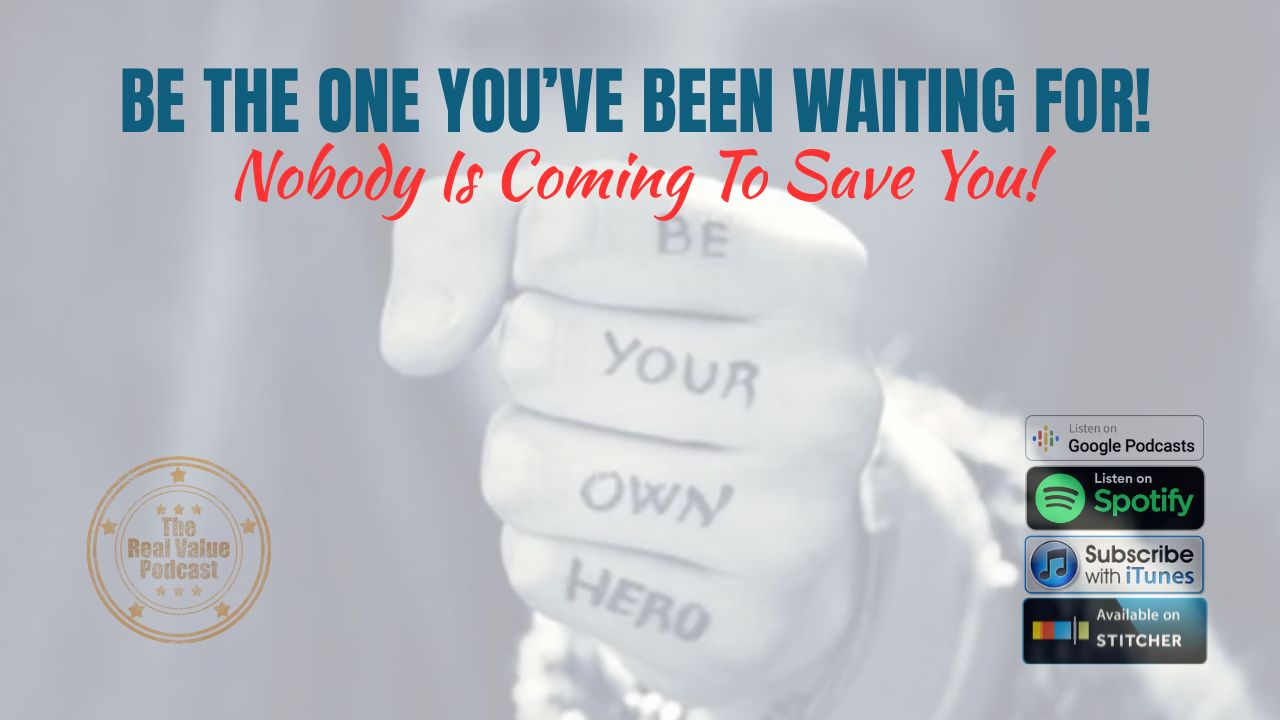
Business Samurai™ Year End Review
Blaine Feyen teaches real estate appraisers how to end their year with a brutal, but eye opening end of year review exercise that will change their life and business ...more
Appraiser coaching
December 12, 2025•12 min read
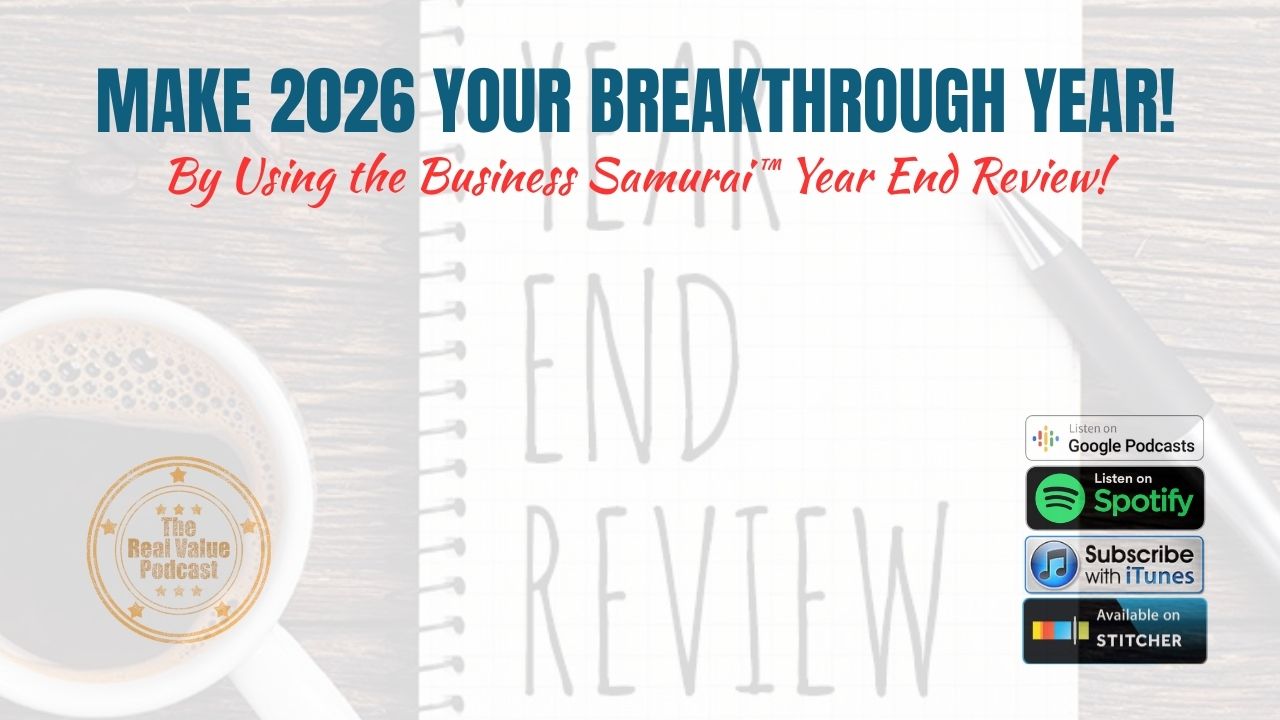
Your Calendar Reveals Your Character
As an entrepreneur and appraiser, how we use our calendar to get real work done is one of the most important things I coach on. Most people let their 'to-do' lists fool them into thinking they're bein... ...more
Real Value Coaching ,Efficiency
November 28, 2025•17 min read

LEADERSHIP COMES AT A COST
The recent death of Charlie Kirk poses some deep reflections on the cost of leadership, influence and impact. What will the world say about you when you’re gone? ...more
Real Value Coaching
November 24, 2025•25 min read
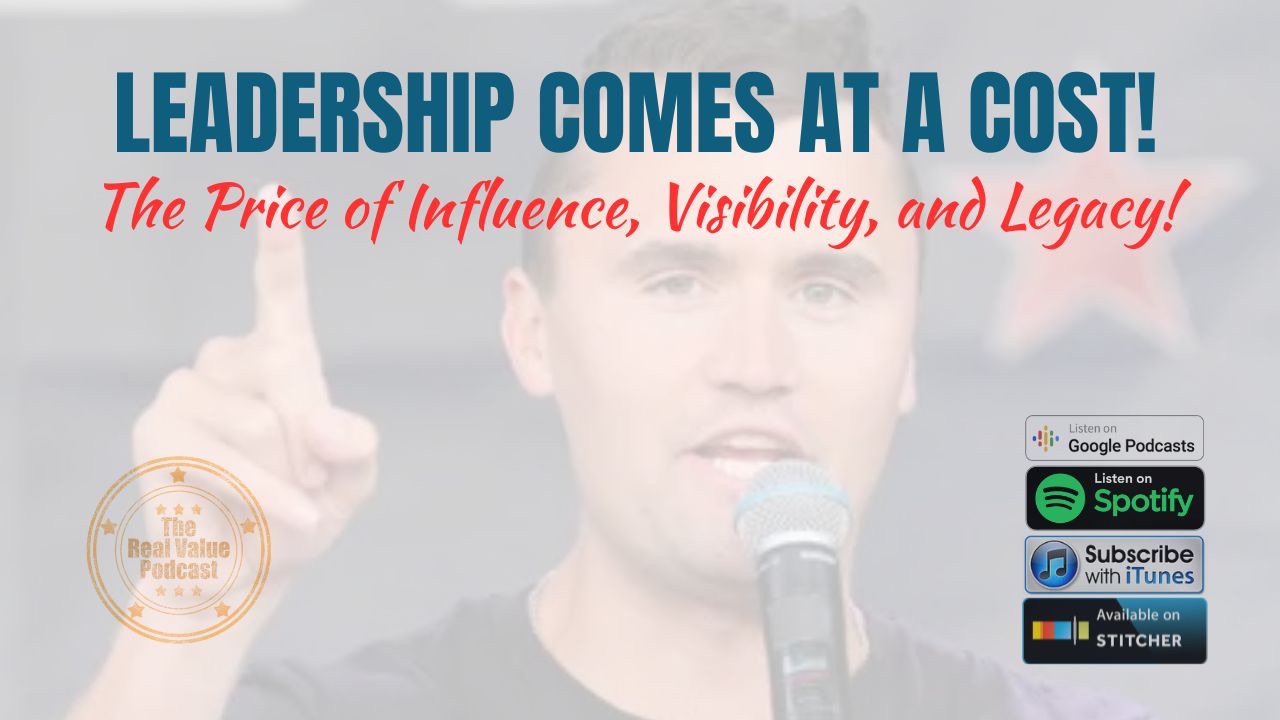
WHAT MAKES US DIFFERENT
1
We don’t just coach 'appraisers', we coach human beings that have chosen to be real estate appraisers. We believe this approach is what allows us to customize our coaching to the individual.
2
We coach on 7 main pillars: Mastering your numbers, success and wealth mindsets, marketing, communication, relationships, health and wellness, and giving.
3
We don’t just focus on your business, we focus on helping you build a business that serves your life goals!
4
We believe in the principle of 'Pay Yourself First' so we teach how to pay yourself first using the Profit First system and mindset.
5
Massive accountability! This is one of the biggest missing pieces in most businesses and other coaching programs. Accountability is the fuel that powers unusual success.
6
We’ve actually done it! We have a multi decade track record of success in the real estate, lending, and appraisal industries. We’ve built several very successful companies and helped dozens more do the same.
7
Ruthless financial management! We’ll teach you to be a master of your financial world which gives you absolute control over your destiny.
8
Our students make up some of the most profitable and successful appraisers in the country!
9
Blaine has built and run 7 successful businesses, sold 4 of them, is a commercial and residential real estate investor, built one of the nation’s largest martial arts and leadership academies, and has coached thousands of students over a 25 year period.

ARE YOU READY
TO BE COACHED?
That is one of the most important questions! There will come a day when you wont want to work as hard as you did when you were younger. We’ll help you pave a path to financial independence so you can eventually live a lifestyle free of having to earn income.
My name is Blaine Feyen and I’m the founder and head coach at the Real Value Coaching Academy. Many studies have been done on the benefits of coaching and here's what they found:
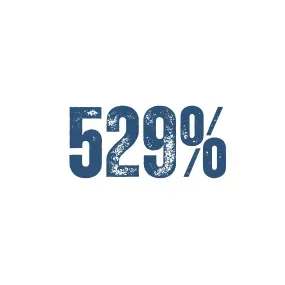
A study of executive coaching in a Fortune 500 firm, by Metrix Global, reported a 529% return on investment and significant intangible benefits to the business.

In a study conducted by Metrix Global, companies received an average return of $7.90 for every $1 invested in executive coaching.
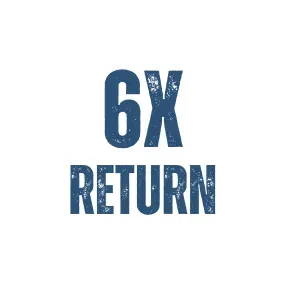
A survey by Manchester Inc. of 100 executives, found that coaching provided an average return on investment of almost six times the cost of the coaching.
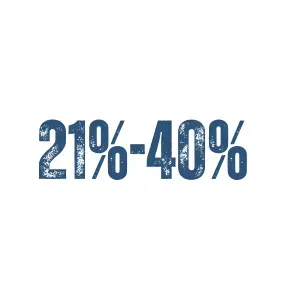
A Hay Group study of Fortune 500 companies found that 21 to 40% utilize Executive Coaching. The same study reports that Executive coaching is used as standard leadership development for elite executives and talented up-and-comers.
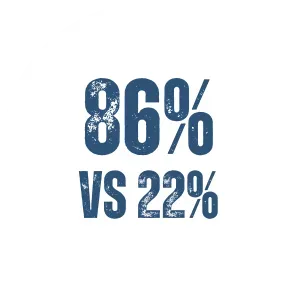
An internal report of the Personnel Management Association showed that when training is combined with coaching, individuals increase their productivity by an average of 86% compared to 22% with training alone.

A 2001 study on the impact of executive coaching by Manchester Inc. showed an average ROI of 5.7 times the initial investment or a return of more than $100,000, according to executives who estimated the monetary value of the results achieved through coaching.
What does that all mean?
It means for every dollar invested with a good coach, you’ll likely see a $5 to $8 return. If you can hire a good coach for $100 an hour, that means a $500 to $800 return, and if a good coaching program costs you $500 per month, that means a $2500 to $4000 per month return on your investment. The question then isn’t ‘why should I hire a good coach’, it’s ‘where do I sign up?’ If I knew that I could always get at least 2X to 3X my money back from an investment, I’d take it every time. If I knew I could get 3-7 times my investment back, and I was in complete control of how that return on my investment came back to me, I’d be crazy not to do it!
Welcome to what I do!
I help busy appraisers, and even the ones who aren’t as busy as they’d like to be, make considerably more money, save more of that money, invest more, accumulate more wealth, get better clients, set better goals, get clear on their core purpose, develop a marketing strategy, become the go-to authority in their market, and think way bigger than they ever imagined they could. I had some really great coaches when I was building my business and it made all the difference in the world for me…and now I help to do that for others. And the results speak for themselves…our students earn, on average, 30 to 40% more than the industry average, they save and invest 107% more than the average, they work 25% less, take more vacations, have more clarity, set bigger goals, and lead more fulfilling lives overall!
LEVEL 1
Not everybody wants to go to the next level in their business and life. Not everybody wants somebody to hold them accountable. Not everybody wants to be given advice on how or why to do something… that’s who the Level 1 Coaching and Mastermind is for!
BLACK BELT TEAM COACHING
If you’re the type of person who likes the feeling of being accountable to others, wants to be interacting with and masterminding with others on a path of growth and increase, the Black Belt Team small group coaching is for you.
ONE ON ONE COACHING
Our One on One coaching program is for those who would prefer to have some direct contact with Blaine and be coached at a very deep level without any other mastermind partners on the call. Since it is one on one, it has the highest level of accountability and requires the most commitment to growth.
COACH THE COACHES
The Coach the Coaches program is our elite ‘By Invite Only’ training program for those committed to becoming coaches in the Real Value Coaching Academy. Blaine has a 20+ year track record of training some of the world’s best teachers and coaches in the personal and business development arena.
You’ve stopped by here for a reason and your time is extremely valuable… make that time count…reach out and ask any and every question you may possibly have about our process and whether or not its right for you. Better yet, just let us know the best way to get in touch with you and take me up on my offer of a free half hour coaching call. I love finding and adding value wherever and whenever I can and would love the opportunity to do that for you, and the risk is all on me to do so.
If you’re not ready for that yet, I understand! Feel free to look into some of the different coaching programs and levels we offer and see if one of them might fit what you’re looking for and one that you think can take you to where you want to be! I hope to talk with you one on one soon!
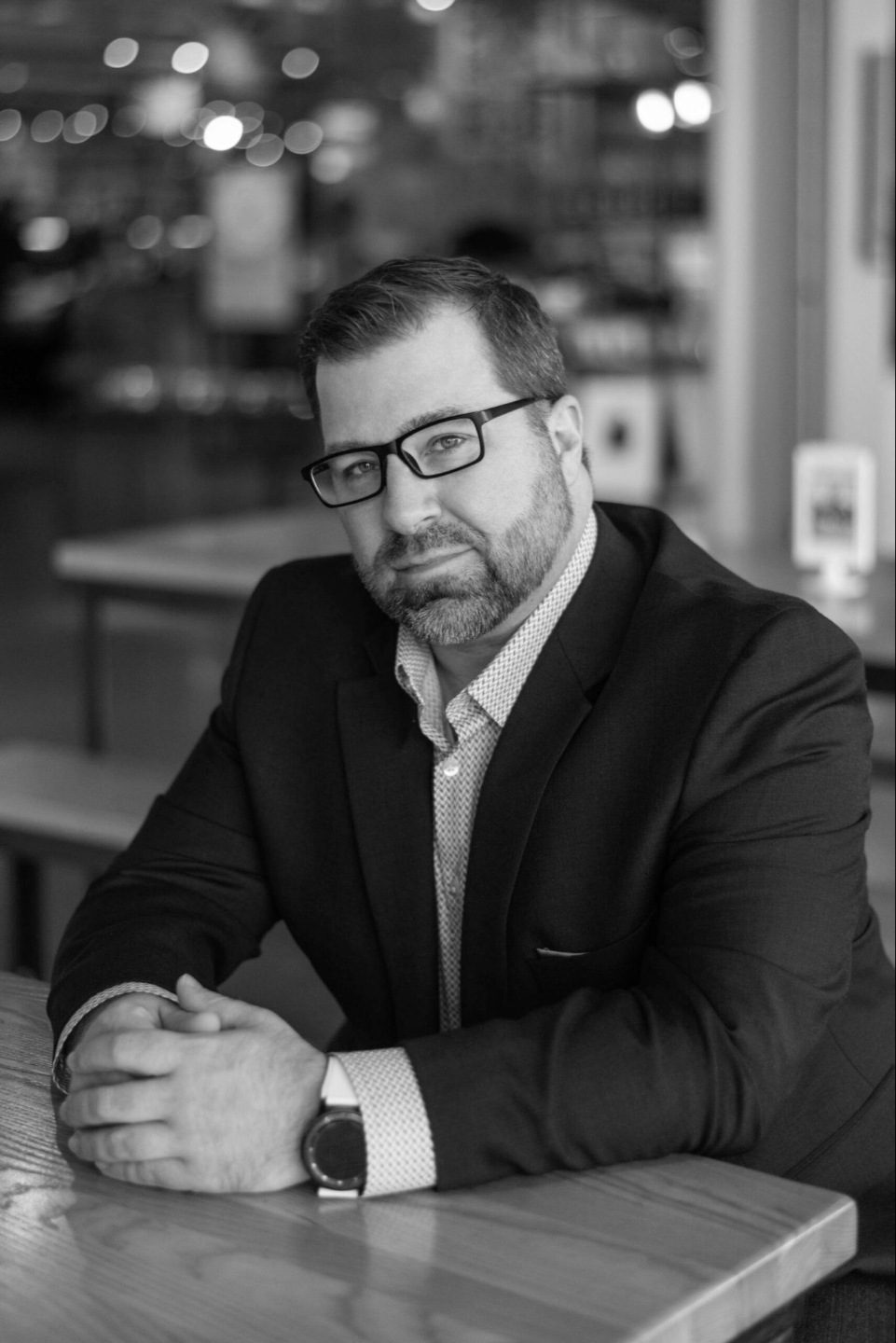
BIOGRAPHY
Blaine Feyen is the founder of the Real Value Coaching Academy. Blaine is also the founder and chief appraiser of the Real Value Group, a growing appraisal firm founded in 2005 after several years building and running a large multi office residential and commercial appraisal firm.
Blaine has more than 25 years of hard earned teaching, coaching, investing, and business building experience. Blaine is a world renowned Aikido teacher, a sought after defensive tactics instructor, an experienced commercial and residential real estate investor, and a multiple business owner.
WHAT YOU’LL LEARN IN
THE COACHING ACADEMY

How to build a relationship based business that gives you more life, instead of giving most of your life to your business

We coach on the exact systems that have helped so many others dominate their markets and build exceptional appraisal businesses

Learn how to keep more of what you earn, save more of what you keep, and create wealth and financial freedom in the process
Create a life plan that leads you to living an exceptional life beyond your wildest dreams!

With more wealth comes greater responsibility! We believe giving is the other side of earning and encourage our students to give back to the world in a variety of ways
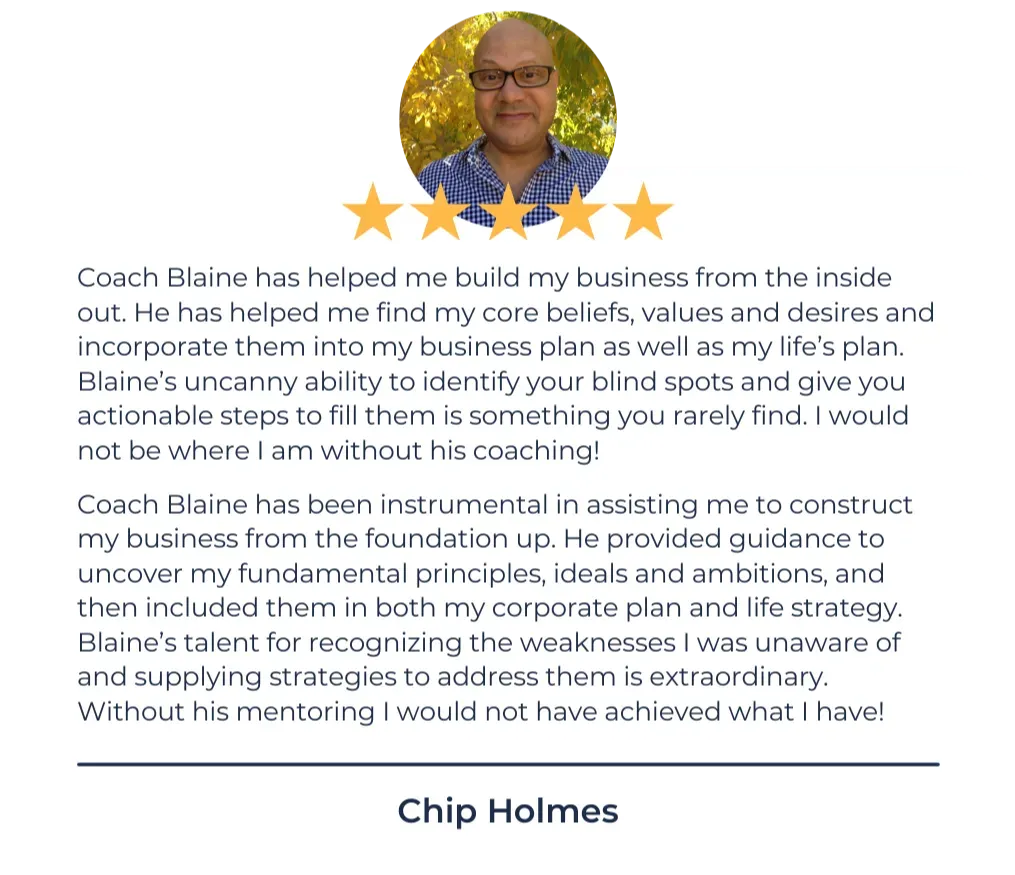
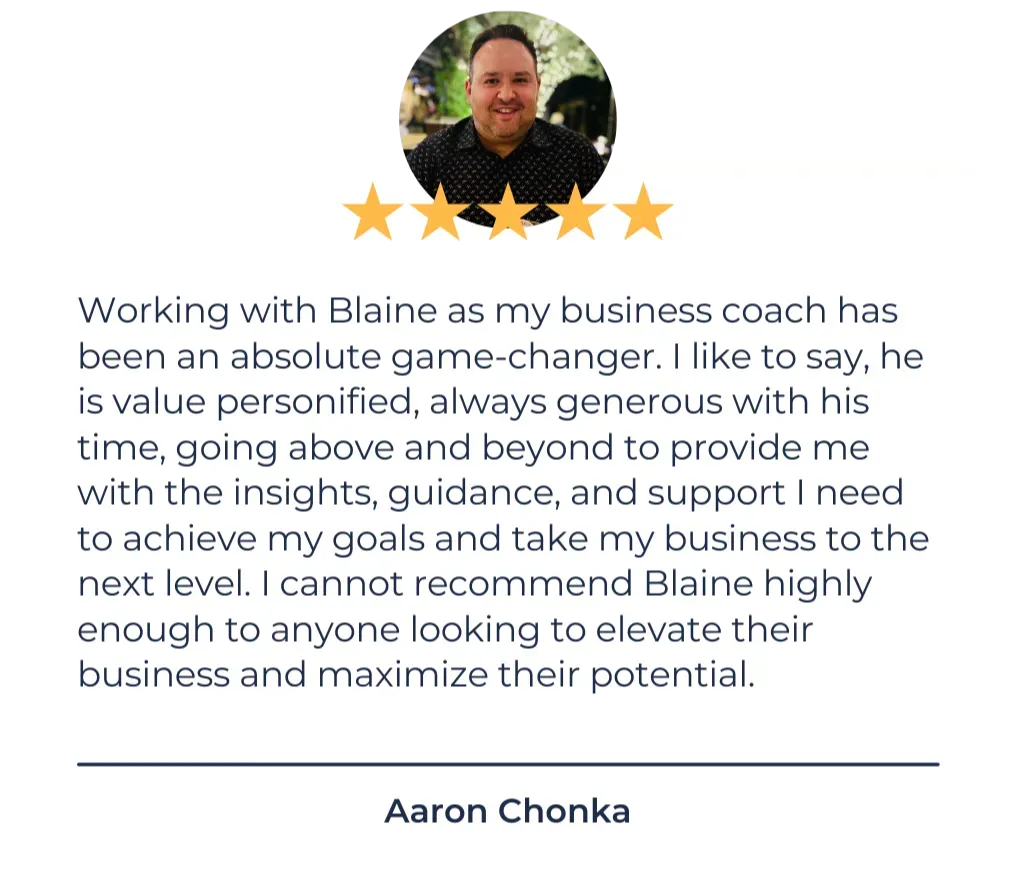
THE 60 DAY GUARANTEE!
Try out any of our coaching levels absolutely risk free for 60 days! If you don’t feel our coaching will help you net 5X your monthly investment, we give you your money back, no questions asked, no hassle, no fine print, no shit! Seriously, we’re not messing around! We believe so strongly in our coaching model that we’ll stand by it by giving you all of our stuff for 60 days for free!
We know how well it works, but we also know that not everybody is willing to do the work. Because of that, we want you to have an out. If you cant make our coaching advice and plans work for you within 60 days, all you have to do is stop paying us and ask us to refund your money. We’ll refund every dollar you’ve paid us thus far and you get to keep any and all of the coaching evolutions you’ve worked on up to that point.
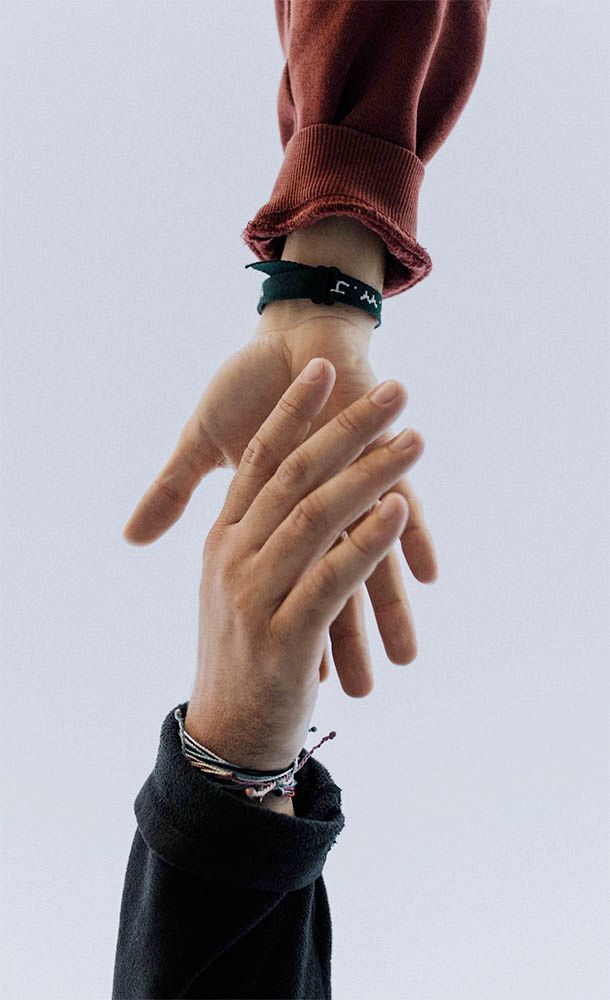
WHY WOULD SOMEBODY HIRE A COACH?
People hire coaches for a wide variety of reasons. Some may hire a life coach to help them get clarity on life goals, challenges, and overcome obstacles and blind spots in thinking.
Business owners hire coaches for similar reasons. A good coach will help you set important goals, get clarity on what's important, teach you how to track and measure the key indicators in your business, show you opportunities you might be missing, find hidden profits, help you save money on unnecessary expenses, teach you things you may not know, think bigger than you've been able to think previously due to being too close to the business, and push you to get more done than you'd be able to do without a coach.
SHOULD MY COACH BE MORE SUCCESSFUL THAN I AM?
The coach you hire should be able to help you achieve what you may have been unable to achieve on your own. This does NOT mean that a coach has to be more successful than you in a particular business, sport, hobby, or whatever pursuit you're aiming for.
There are many examples of excellent coaches in sports that are nowhere near as talented as the players they coach. A good coach is able to tap into something the player, student, or businessperson is unable to tap into on their own. A good coach is also able to push you by holding you accountable, asking deep probing questions, helping you see what has been holding you back, and generally help you achieve more than you could have on your own.
HOW DO I GET THE MOST FROM MY COACHING EXPERIENCE?
The best way to grow from a a good coaching experience is by being open to suggestion. if you come into a coaching relationship thinking you already know everything, there is very little a coach can do for you. You must be willing to 'empty your cup' and be open to being pushed into areas that may scare you a bit.
A good coach is able to discern some of your weaknesses and blind spots, even when you can't. You MUST be willing to take some criticisms and harsh suggestions at times if you are truly committed to the benefits of being coached.
HOW MUCH SHOULD I PLAN ON SPENDING ON A COACH?
HOW DO I CHOOSE THE BEST COACH FOR ME?
Finding and hiring a good coach is not something to take lightly! You will be partnering with your coach for a period of time in order to get some kind of outcome. If you don't 'mesh' well with your coaches personality or coaching style, you will not get all of the benefits you should be receiving from the coaching experience.
Do some research on the potential coaches you'd likely consider working with. Then reach out to each of them and set up a coaching call or interview to see if something resonates with you while talking with them. Of course, be sure to pick a coach who can lead you in the direction you think you'd like to go.
HOW MUCH SHOULD GOOD COACHING COST ME?
Good coaching doesn't cost you anything, it will pay dividends and returns far beyond whatever your monthly or annual investment might be. Multi Billionaire, Paul Tudor Jones, pays Anthony Robins $1,000,000 per year to be his personal coach. He sees his million dollar annual investment in coaching as an investment in himself and credits having a personal success coach as the reason for his success. Billionaire, Ray Dalio, also invests millions in personal coaching for the same reason.
You probably don't want to invest millions into personal or business coaching, unless of course, you're a billionaire. However, good business coaching should give you a return of at least a 1 to 1 return (that's $1 back for every $1 invested), and well up to even a 100 times return on your investment. One good idea gleaned from your coach could end up netting you tens of thousands, potentially hundreds of thousands of dollars or more. One poignant suggestion from your coach could help you avoid losing that much as well.
As a rule, you should seek at least a 2X return (that's $2 for every $1 spent on coaching). If you spend $500 per month, for example, you should expect to find at least $1000 per month in return via increased profits, increased sales, decreased losses, new business opportunities, and a variety of other avenues your returns may show up.
HOW MUCH SHOULD I PLAN ON SPENDING ON A COACH?
How much you invest into your coaching will depend on a variety of factors. One of the considerations is the industry you're in, if you are seeking coaching in a particular business, and what you hope to gain by hiring a coach.
If you are hiring a business coach in your industry and hope to increase both the top and bottom lines of your income statement, the cost of coaching should be a reflection of what you have to gain, how qualified your coach is, how likely you are to follow their suggestions, and how much you value growth. If you stand to gain $50,000 to $100,000 or more in income, investing 10% or 20% of that amount would be reasonable. Another way to think of it is by asking, if it only cost you $2 to buy a $10 bill, would you make that purchase?
Good coaching is definitely an investment in your personal and professional growth. You have to decide how badly you desire to grow and what you're willing to invest to achieve it. Good coaching doesn't cost anything when you look at it that way.
HOW DO I KNOW IF A COACH IS GOOD OR NOT?
Good is a relative term and it will all depend on what you're seeking and how willing you are as a coaching student. If you do your research first, you should have a fairly good idea initially if the person you're thinking of hiring can help you grow in the direction you wish to go.
A good coach is somebody who can help you think differently than you thought before. A good coach will give you a new perspective on things. They can show you your blind spots if you're willing to see them. They can help you understand things you've been unable to understand previously. A good coach will also be willing to hurt your feelings a bit if they think it will help you grow.
Good coaching is relative to the person being coached, the industry the coach works in, the results being sought, and the prior experience of the coach. Everybody is not right for every coach, and every coach is not right for every student.
READY TO BE EXCEPTIONAL?
You have nothing to lose but time, start your growth today!
© 2025 Real Value Coaching Academy
© 2025 Real Value Coaching Academy





